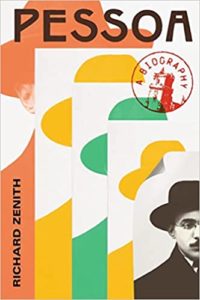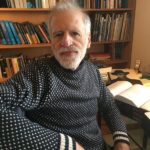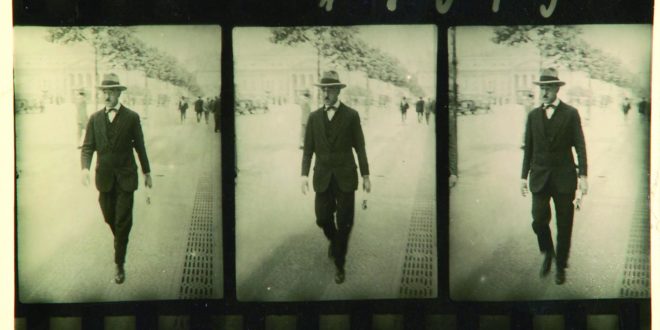Podcast: Play in new window | Download (Duration: 58:35 — 80.4MB)
 This is the first of two shows on Fernando Pessoa, perhaps the greatest modern Portuguese poet, who proclaimed himself greater than Luís Vaz de Camões, author of The Lusiads, an epic fantasy of the adventuring, marauding, slaving, nation published in 1572.
This is the first of two shows on Fernando Pessoa, perhaps the greatest modern Portuguese poet, who proclaimed himself greater than Luís Vaz de Camões, author of The Lusiads, an epic fantasy of the adventuring, marauding, slaving, nation published in 1572.
And in a like manner, Pessoa strives to better, or at least equal, another so-called national epic, in this case that of Walt Whitman’s Leaves of Grass, imagining himself the fulfillment of Whitman’s “poets to come…a new brood, native, athletic, continental, greater than before known…”
Can any poet actually back up this kind of megalomaniacal claim? At the very least Pessoa did, demonstrably, contain multitudes – and principally a trio of what he called heteronyms, of which there are hundreds – essentially other written “selves” – named Alberto Caeiro, Ricardo Reis, and Álvaro de Campos. If Fernando Pessoa is the greatest Portuguese poet of the 20th century, then he is, rather, the four greatest Portuguese poets of the 20th century.
To guide us on our own voyage of discovery into the mind and life of this circle with no center we’re joined by Richard Zenith, acclaimed English translator of Pessoa’s poetry and prose, and now author of a monumental biography titled simply, Pessoa: A Biography, published earlier this year by Liveright.
Our music throughout is from Chopin’s Preludes, Opus 28, performed by Maria João Pires. Like Pessoa, Pires was born in Lisbon, not quite a decade after the poet’s death. She has been called “a pianist without a trace of narcissism—among the most eloquent master-musicians of our time.”
In the “Introduction” to Fernando Pessoa & Co., a book of English translations of Pessoa’s poetry, Richard Zenith compares Pessoa’s work to these Preludes, which have been said to be something more like remnants than beginnings, like works that had…”been realized to the point of divine perfection, after which they had fallen to the ground and broken into pieces, most of which were lost irretrievably.”
We center today on 1915 and Pessoa’s public coming out as Whitman’s poet to come. In the pages of the modernist journal Orpheu, which published only two issues, Pessoa presented his “static drama” The Mariner, signed by Fernando Pessoa, which can be said to reveal the entire project of his life’s work, and also several poems by his most vital heteronym, Álvaro de Campos. We’ll pay special attention to “Maritime Ode” which appeared in Orpheu 2. At over nine hundred lines, it was Pessoa’s longest completed poem.
Throughout we’ll hear selections from the pieces under discussion – they will be edited, compressed, for time.
We begin with the problem of biography – what’s in a life that’s worth writing about when the life is about writing?
 GUEST
GUEST
Richard Zenith is an acclaimed translator and literary critic. His translations include Pessoa’s The Book of Disquiet and Fernando Pessoa and Co.: Selected Poems, which won the PEN Award for Poetry in Translation. The recipient of Portugal’s Pessoa Prize, Zenith lives in Lisbon, Portugal.
RELATED
The Presence of Pessoa – Part Two with Richard Zenith (Interchange)
The Year of the Birth of Alberto Caeiro (from Pessoa: A Biography)
A Literature on the Brink of Dawn by Richard Zenith
The Heteronymous Identities of Fernando Pessoa by Richard Zenith
 MUSIC
MUSIC
24 Preludes, Op. 28, performed by Maria João Pires
CREDITS
Producer & Host: Doug Storm
Executive Producer: Kade Young
 WFHB Bloomington Community Radio
WFHB Bloomington Community Radio


